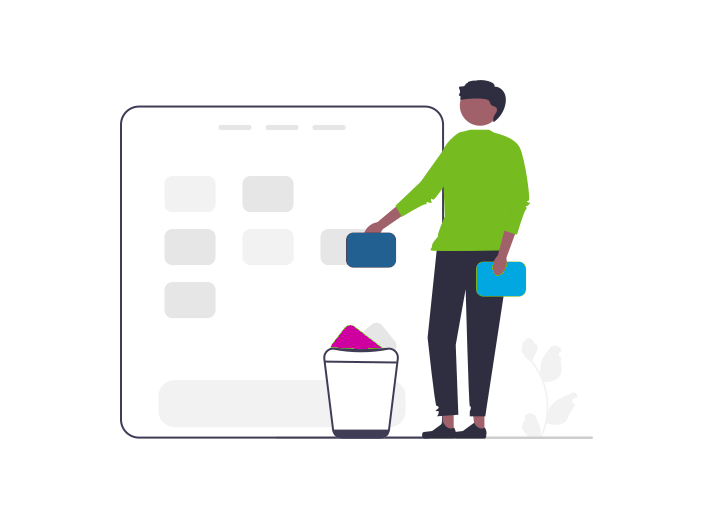Device Ownership
Practices that support device longevity, including physical care, protective software, and using technical support.

Guiding Questions
- Do I know how to care for my tech devices and keep them secure?
- Can I do some basic troubleshooting for technical problems?
- Do I know how to find technical support when I’m not able to fix a problem?

Context Why the skills in each domain are needed for digital opportunity, defined as "the condition in which individuals and communities have the information technology capacity that is needed for full participation in the society and economy of the United States" (H.R.3684)
Access to affordable, appropriate devices is a critical component of digital opportunity. According to Digitunity, “vulnerable populations…stand to gain the most from stable, individual access to a large-screen computing device, such as a laptop or desktop computer.”5 Yet 41.2 million people, or 12.9% of the U.S. population, still do not have access to a computer, laptop, or tablet.6 Initiatives to address device ownership at scale include distributing subsidized devices, increasing device refurbishing, and implementing right-to-repair policies to support device longevity.7
Awareness What practitioners should know before teaching each domain (e.g., related topics, factors that may affect learners)
Practitioners should be aware of the following when teaching device ownership skills:
- Device access:Learners may share their device(s) with family and friends, and/or may not be the primary owner of the device(s) they are using.
- Appropriate devices: What is considered an appropriate device (e.g., a tablet versus a laptop) for a learner will depend on their needs, preferences, and learning goals.
- Finding technical support: Learners may already have knowledge of and access to community and informal technical support services and resources (e.g., digital navigator services), especially those in their primary language. At the same time, learners may not be able to access or afford more formal technical support services (e.g., device maintenance centers, help forums).
- Repair and replacement costs: Learners who can afford a device may still choose not to purchase one due to anticipated repair and replacement costs.
- Adaptive devices: Learners with disabilities may own adaptive devices that have been heavily customized. As a result, they may have already developed a robust set of device ownership skills, which they may not be comfortable sharing with others. Additionally, learners with adaptive devices may apply device ownership skills in new or different ways. At the same time, customized devices may require different avenues of technical support.
Taking Action What practitioners and programs can do to be inclusive when teaching each domain
Practitioners can take action to be inclusive in the following ways:
Instruction and Training
I can:
- Learn from learners and identify the challenges they may face when it comes to device ownership.
- Recommend appropriate devices for learners based on their needs, preferences, and learning goals.
- Explicitly teach the relevant vocabulary that learners need to accurately convey basic technical issues.
- Recognize the importance of community and informal technical support that learners access via their “people networks.”
- Emphasize the increased importance of device safety and security skills for learners who rely on a shared device.
- Support interested learners in advocating for appropriate, affordable device access.
Program Design
Our program:
- Partners with other organizations to connect learners to appropriate, affordable devices in our community, including discounted, subsidized, and refurbished devices.
- Provides regular on-site technical support hours so that learners can access multiple services in one location.
- Connects learners to appropriate technical support in our community, taking into account common concerns such as cost, location, hours, and language(s) of service.
- Partners with device refurbishers to refurbish and donate our previously owned devices to learners.
- Provides guidance to learners on where to recycle devices in our community.
Related Inclusive Practices
See the following domains for relevant skills and related inclusive practices:
Gateway Skills, Privacy and Security
Citations
5Amy L. Gonzales, Digital Inequalities, E-Waste, & Right-to-Repair: Three Policy Sectors that Impact Low-Cost Device Access (2022), 3.
6https://www.americanimmigrationcouncil.org/sites/default/files/research/04.22_digital_equity_fact_sheet.pdf (p. 4)
7Gonzales.





